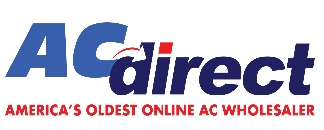The Regulatory Maze of HVAC Compliance in Commercial Buildings
-
 By
Michael Haines
By
Michael Haines
- Dec 12, 2023
The Regulatory Maze of HVAC Compliance in Commercial Buildings


Written by Michael Haines 12/11/2023 Ensuring HVAC compliance in commercial buildings and by adopting a proactive and comprehensive approach, building owners and operators can navigate the regulatory maze effectively.
In commercial buildings, ensuring the proper functioning of HVAC systems is a matter of maintaining comfort and efficiency, and it's also a legal obligation. Commercial building owners and operators must navigate an intricate regulatory landscape encompassing various federal, state, and local requirements related to HVAC design, installation, maintenance, and operation. Failure to comply with these regulations can result in costly penalties, legal disputes, and health and safety hazards.
A Multifaceted HVAC Compliance Regulatory Framework
The regulatory framework governing HVAC compliance in commercial buildings is multifaceted, involving a multitude of agencies and organizations. At the federal level, the Environmental Protection Agency (EPA) plays a central role in establishing standards for indoor air quality (IAQ), particularly as it pertains to ventilation and pollutant control (EPA, n.d.). The Occupational Safety and Health Administration (OSHA) also sets forth regulations to protect workers from exposure to hazardous substances, including those potentially emitted by HVAC systems (OSHA, n.d.).
On a more localized scale, the International Building Code (IBC) provides a comprehensive set of requirements for building construction, including HVAC system design and installation (International Code Council, 2021). The American Society of Heating, Refrigerating and Air-Conditioning Engineers (ASHRAE) complements these standards with its own set of guidelines and recommendations (ASHRAE, n.d.). Additionally, local building codes and regulations may impose further restrictions or specific requirements within a particular jurisdiction (consult your local building department for specific regulations applicable in your area).
A Practical Approach to HVAC Compliance
To navigate the complex regulatory maze of HVAC compliance, commercial building owners and operators must adopt a proactive and comprehensive approach. The first step involves familiarizing oneself with the applicable regulations at all levels – federal, state, and local. This can be achieved through diligent research, consultations with experts, and engagement with local building departments.
Once a clear understanding of the regulatory landscape is established, a systematic approach to compliance can be implemented. This includes:
- Maintaining detailed records of HVAC system design, installation, maintenance, and operation is crucial for demonstrating compliance. This documentation should be easily accessible and up-to-date.
- Scheduling regular inspections by qualified HVAC professionals helps identify and address potential issues before they escalate into major problems or regulatory violations.
- Implementing a preventive maintenance program ensures that HVAC systems are operating efficiently and effectively, minimizing the risk of breakdowns and regulatory noncompliance.
- Providing adequate training to employees on HVAC system operation, maintenance procedures, and emergency protocols is essential for ensuring overall safety and compliance.
- Keeping abreast of changes in regulations and industry standards is crucial for maintaining continuous compliance. This can be achieved through industry publications, attendance at relevant events, and engagement with professional organizations.
The Multifaceted Advantages of HVAC Compliance
Compliance with HVAC regulations is not just a legal obligation; it also brings a multitude of benefits to commercial building owners and operators. These benefits include:
- Proper HVAC system design, installation, and maintenance minimize the risk of accidents, health hazards, and indoor air quality issues (EPA, n.d.).
- Efficient HVAC systems reduce energy consumption, lower operating costs, and contribute to a more sustainable building operation (ASHRAE, n.d.).
- Compliance with regulations shields building owners and operators from potential legal liabilities arising from HVAC-related incidents or non-compliance.
- A commitment to HVAC compliance demonstrates a responsible approach to building management, fostering trust and positive relations with tenants, employees, and regulatory authorities.
- Maintaining compliant HVAC systems contributes to the overall value and longevity of commercial buildings, enhancing their attractiveness to potential buyers or tenants (ASHRAE, n.d.).
Key Agencies and Organizations in Commercial HVAC Compliance
Navigating the world of commercial HVAC compliance can be intricate, involving a diverse range of agencies and organizations that set standards and provide guidelines. Understanding the roles and resources offered by these key players is essential for ensuring that commercial buildings meet all applicable regulations and maintain a safe, efficient HVAC system.
Federal and International Agencies
- The Environmental Protection Agency (EPA plays a crucial role in setting standards for Indoor Air Quality (IAQ), focusing on ventilation and pollutant control. They offer a wealth of resources and guidance for complying with HVAC regulations, helping businesses improve air quality and energy efficiency. EPA Website.
- The Occupational Safety and Health Administration (OSHA) is pivotal in protecting workers from exposure to hazardous substances, including those related to HVAC systems. They provide essential standards and guidelines for the safe operation and maintenance of HVAC systems. OSHA Website.
- The International Code Council (ICC) is responsible for the International Building Code (IBC), which encompasses comprehensive requirements for building construction, including HVAC system design and installation. ICC Website.
Professional Organizations
- The American Society of Heating, Refrigerating and Air-Conditioning Engineers (ASHRAE) is a leading professional organization that develops standards for HVAC system design, operation, and maintenance. They also offer training and resources for HVAC professionals. ASHRAE Website.
Local Enforcement and Additional Resources
- Local Building Departments enforce building codes at the local level, including HVAC regulations. They are a valuable resource for understanding specific requirements in your area.
- North American Technician Excellence (NATE) offers certification programs for HVAC technicians, ensuring high standards of professionalism and knowledge in the industry. NATE Website.
- Air Conditioning Contractors of America (ACCA) provides support and resources for HVAC contractors, helping them stay updated with industry standards and best practices. ACCA Website.
- The Sheet Metal and Air Conditioning Contractors' National Association (SMACNA) offers guidelines and training for contractors, focusing on quality and efficiency in HVAC system installation and maintenance. SMACNA Website.
For commercial building owners and operators, staying informed and compliant with HVAC regulations is vital for operational efficiency, safety, and environmental responsibility. Consulting with these agencies and organizations ensures that commercial HVAC systems meet all necessary standards, contributing to a safe, healthy, and energy-efficient building environment.
An Investment in Safety, Efficiency, and Long-Term Value
Ensuring HVAC compliance in commercial buildings and by adopting a proactive and comprehensive approach, building owners and operators can navigate the regulatory maze effectively, reaping the multifaceted benefits that compliance brings. Remember, compliance is not just about following rules, it's about creating a safe, healthy, and sustainable environment for those who occupy and interact with commercial buildings.

 and now, NASCAR Racing Sponsor
and now, NASCAR Racing Sponsor








